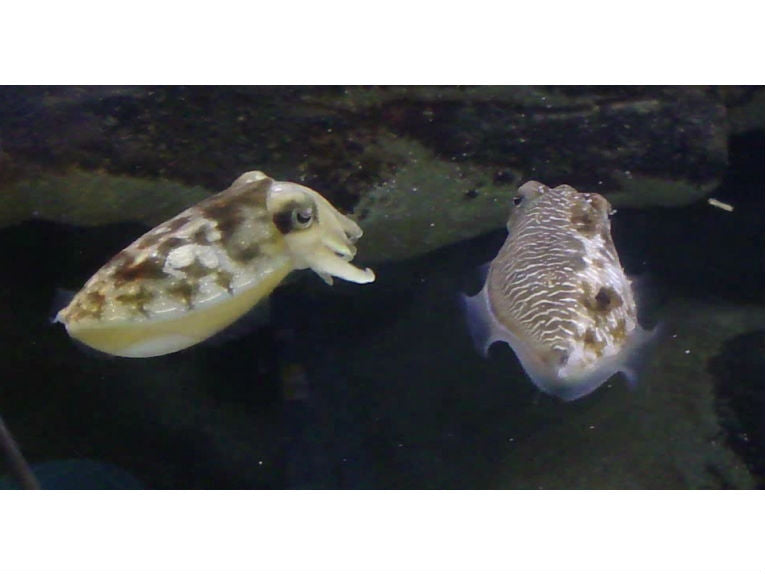The brainy cephalopods have ruled many oceans for millions of years. With their highly advanced eyes and coloured "skins," they are well able to transmit and receive signals more complex than most. Shape and colour change make them one of the leading camouflage experts of the animal world. East of Australia the mourning cuttlefish (Sepia plangon) is a competent hunting and courtship expert!
Culum Brown, Martin P. Garwood and Jane E. Williamson of Macquarie University in Sydney published their cephalopod study this week in the journal Biology Letters on a remarkable 'cheating' technique.
After six years in Sydney Harbour, they deserve to be read. Honesty is always the best policy, except when you can cheat. Even children can discover this in the simplest of gaming theory approaches to their communication with others. A cheat should be punished and in this case, they are, if they are found out!
A small number of cheats can always manipulate the system, despite strong retributions. With the adept cephalopod systems, a rapid switch from honest to dishonest and back again is easily achieved. The research found that an unbelievable 38% of males used dual signals when only one rival male was present. The authors' prediction of rife deception in the cuttlefish world was fulfilled. They should try banking. The display is easily manipulated; simple for this animal to change and difficult for distant males to determine.

The rival male approaches from the right at "A". The male (M) quickly adopts the brown diamond and white pattern on his right side, while maintaining the male courtship appearance on his left. The female (F) is happy, the male passes his spermatophore over for mating (using tentacles) and the rival thinks he's choosing which lady to 'party' with; Credit: © Culum Brown/Biology Letters
What is the retribution then? If a rival discovers the female signal is wrong, a fight breaks out. Dominant males tend to win, so punishment could involve injury to a somewhat delicate body. The time needed to persuade a female to mate is increased by means of this tactic. Culam and the others suggest it's like the surreptitious mating of gorillas when the silverback male isn't looking, and they are dead on! Those precious few seconds allow the important transfer to take place.
How linked is this behaviour to the type of performance we find in primates and others? Cognition in these cephalopods is as advanced as their sensory systems. Complex social group soften employ this kind of advanced "detection" (and deception).
In the short-lived cuttlefish, perhaps we have a glimpse of life in the depths with more long-lived relatives. The suggestion this research makes is that the social complexity of cephalopods could approach that of primates, if this is what they are capable of.










